Summer 2024 Release
Auctria continually evolves to support your events better with new features and improvements.
Our summer 2024 release moves the preview features into the main release.
You can still access the previous version at previous.auctria.com. All data there is shared with the production release.
There are several significant new features and numerous minor enhancements in this release.
- New Financials page to stay on top of your fundraising
- Built-in event website analytics to track activity on your event website
- Support for editing item descriptions with AI to generate exciting and dynamic content to engage your bidders
- Changes to our terminology to better support non-auction events
- New graphs to track income, ticket sales, etc over time
- Improved tagging support, including being able to apply tags to participants based on items purchased or tickets assigned
- New filtering to be able to drill down to groups of participants or items more precisely
Checklist
Long time Auctria user?
Here's what you need to know in a nutshell!
- Auction has been updated with Event
- Bidder has been updated with Participant
- The Donors section has moved under Items -> Item Donors to better reflect its primary role in tracking item donors.
- The Credit Cards section has moved under the Financials page
These changes do not affect behavior at all; existing features continue to work as they did before, just with different wording and from new places.
Terminology Changes
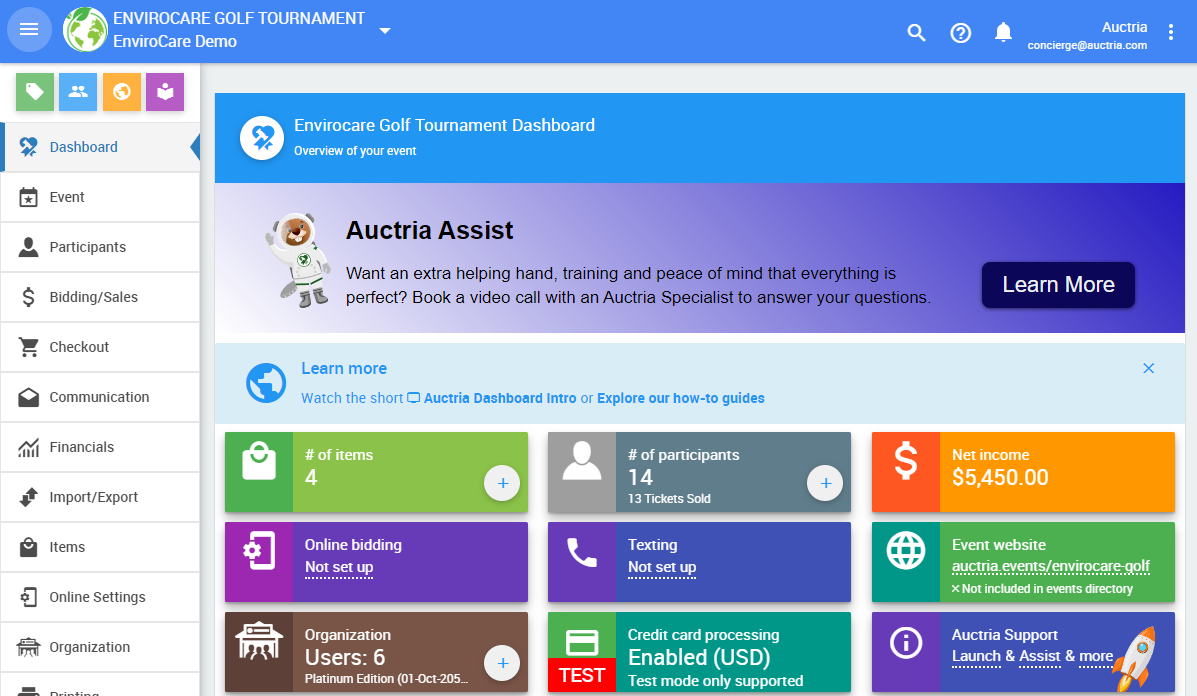
One of the most visible changes in this release is changing our default terminology. Auctria's roots were in fundraising auctions, but we have grown to support many fundraising events, and using the terms 'auction' and 'bidder' throughout the platform can be confusing.
In the future, the default terms are changing:
- 'auction' becomes 'event'
- 'bidder' becomes 'participant'
- 'bidder#' becomes 'paddle#'
We are also updating the way item types are displayed to better reflect their meanings:
- 'live' becomes 'live bidding'
- 'online' becomes 'online bidding'
- 'silent' becomes 'paper bidding'
The 'donor' section has also been renamed 'item donor' to better reflect the primary purpose of these records: tracking the people who donated auction items or provided in-kind donations. What was previously referred to as 'donor donations' are now called 'in-kind donations.'
These are purely changes to the wording; they have no impact on the behavior of the system.
Suppose you prefer to keep the old wording. In that case, there is a new page under Event Terminology, where you can change the settings for the current Event to keep the old terms.
User Guide: Terminology
Financials Page
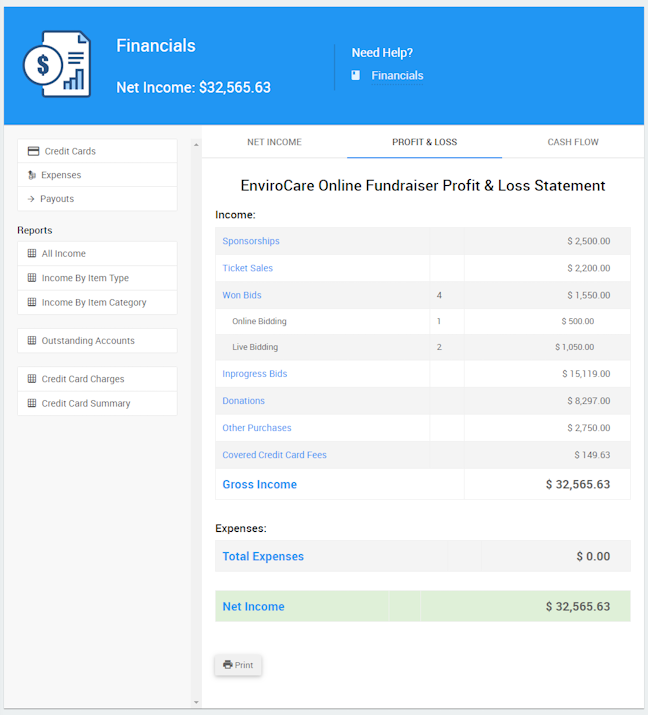
A new financials dashboard provides a detailed and printable overview of your Event's accounting, both from a profit and loss perspective and a cash flow perspective.
You can also see the pending Stripe payouts directly from within Auctria.
User Guide: Introduction to Financials
Website Analytics
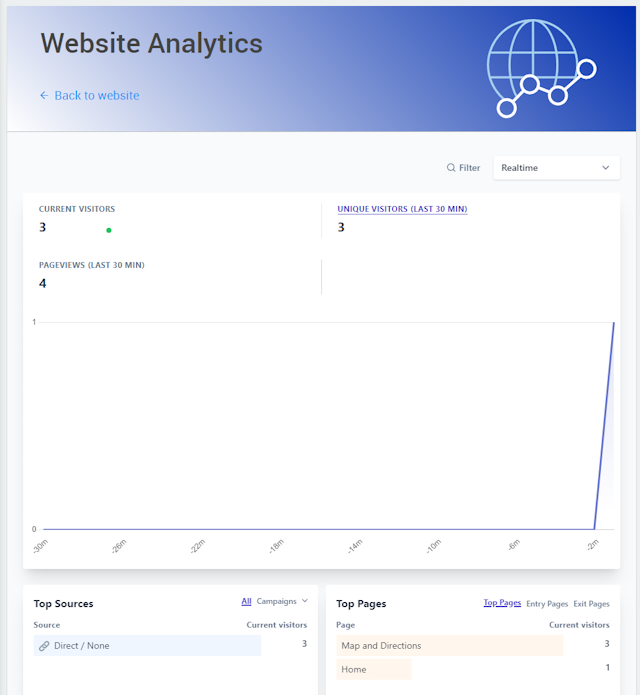
We are excited to be able to offer built-in website analytics for all event websites on paid plans.
To access this feature, click on Website Website Analytics.
User Guide: Website Analytics
AI Item Descriptions
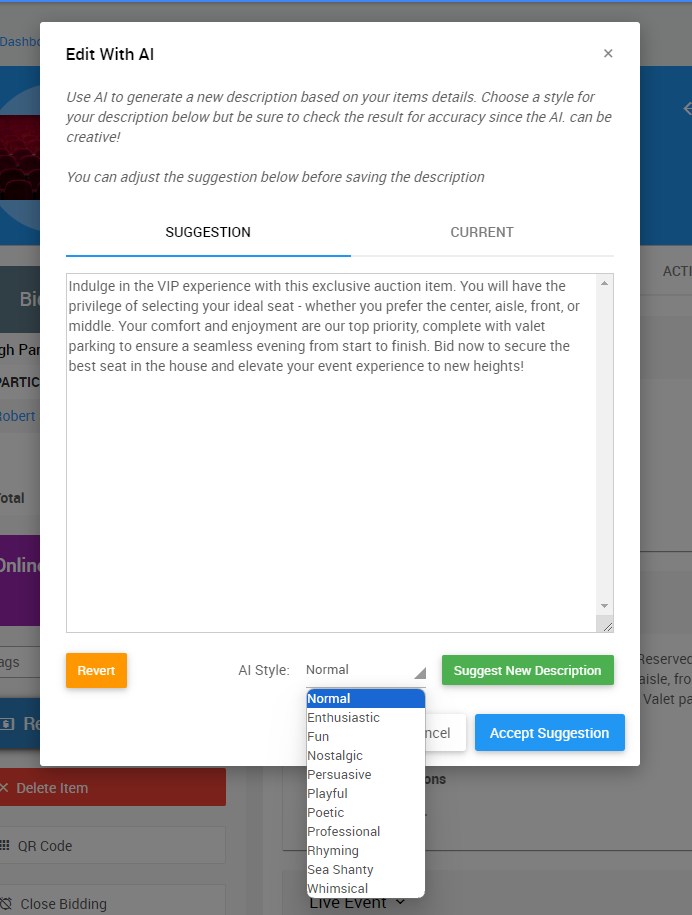
AI 'chatbots' have made a huge splash over the last year or so and offer exciting opportunities to help with editing content. As a first step, we have added a feature that allows AI to rewrite existing item descriptions by giving it a target 'mood' for the wording.
This will make it easier to generate compelling item descriptions to engage your bidders.
This feature can be accessed directly from the Summary tab of the item details page, where you edit the item description.
Graphs
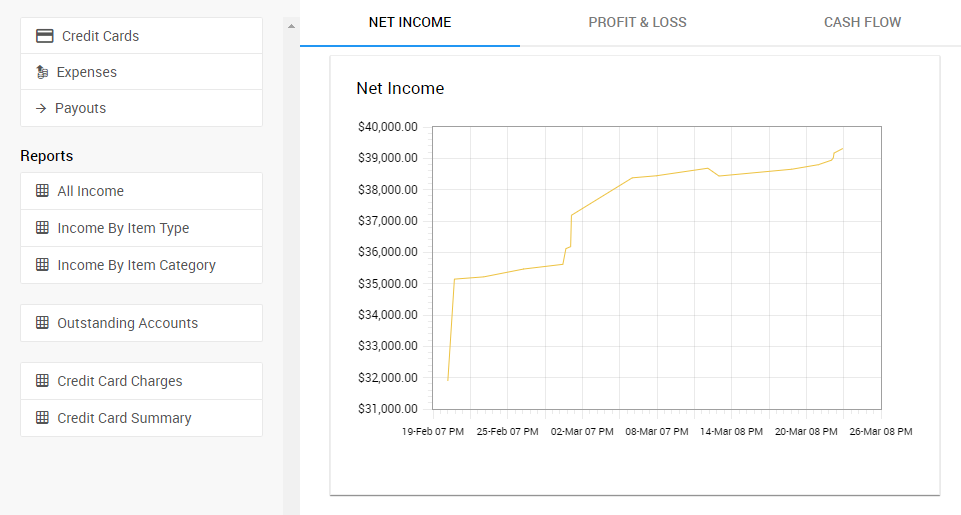
We now automatically track a number of metrics about your Event over time, so we can provide graphs showing ticket sales, sponsorships, and net income over time. These are automatically displayed on the appropriate dashboard page when we have enough data.
Tagging
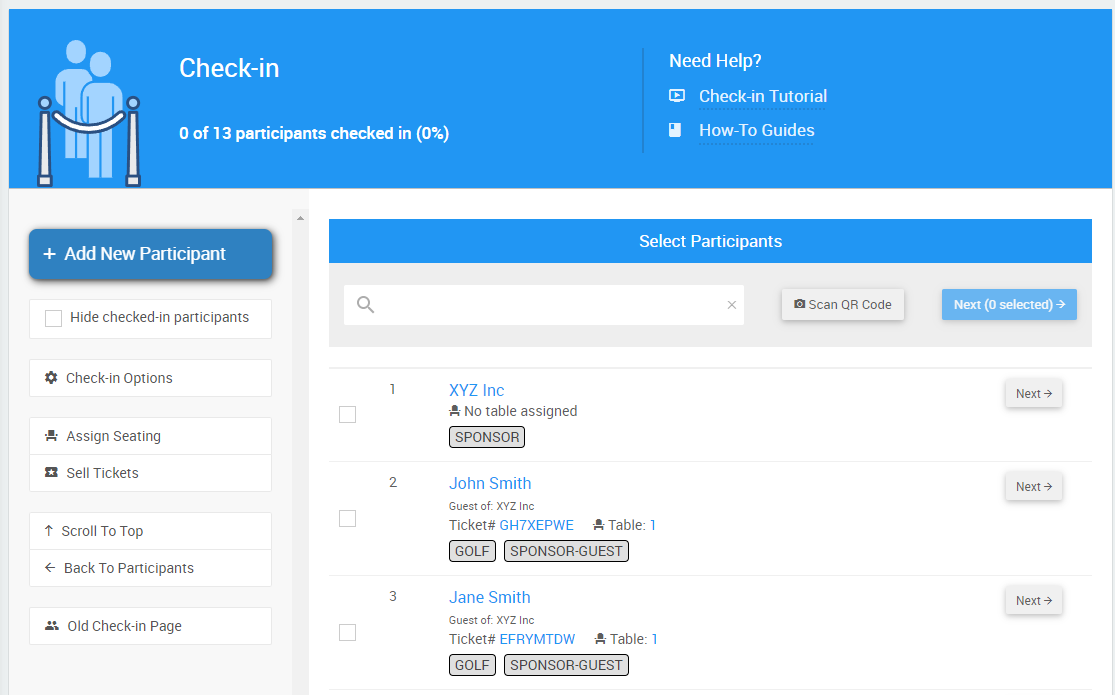
Better identification of groups of participants is a common request across events. For example, a golf tournament may require identifying who is actually a golfer vs. a dinner guest, or the check-in staff may need to identify VIP ticket holders or those who have pre-purchased drink tickets.
New tagging features allow organizers to define tags on items 'inherited' by participants who purchase them or are assigned a ticket related to them.
These tags are displayed on the check-in screen when searching and checking in participants. They can also be used when filtering for participants.
User Guide: Introduction To Advanced Tagging
Filtering
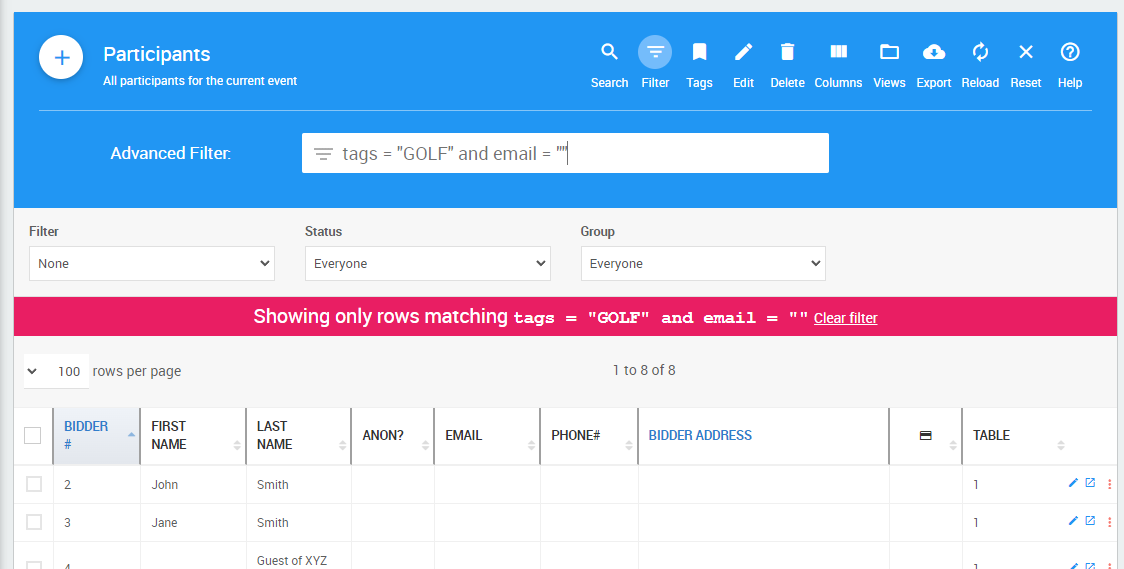
Simple but powerful filtering expression support allows you to define conditions that identify groups of participants or items. This can be used across reports and pages requiring selecting participants or items. For example, you can use it to send a custom email to ticket holders who do not have a meal choice defined or sponsors who have guests who still need to provide details.
Other smaller updates
- Report ticket and sponsorship sales separately on the ticket dashboard
- See the list of upcoming Stripe payouts from within Auctria
- Support selecting multiple guests via checkboxes on the Check-In page
Stay tuned for more updates to improve your event night experience.
Last reviewed: July 2024